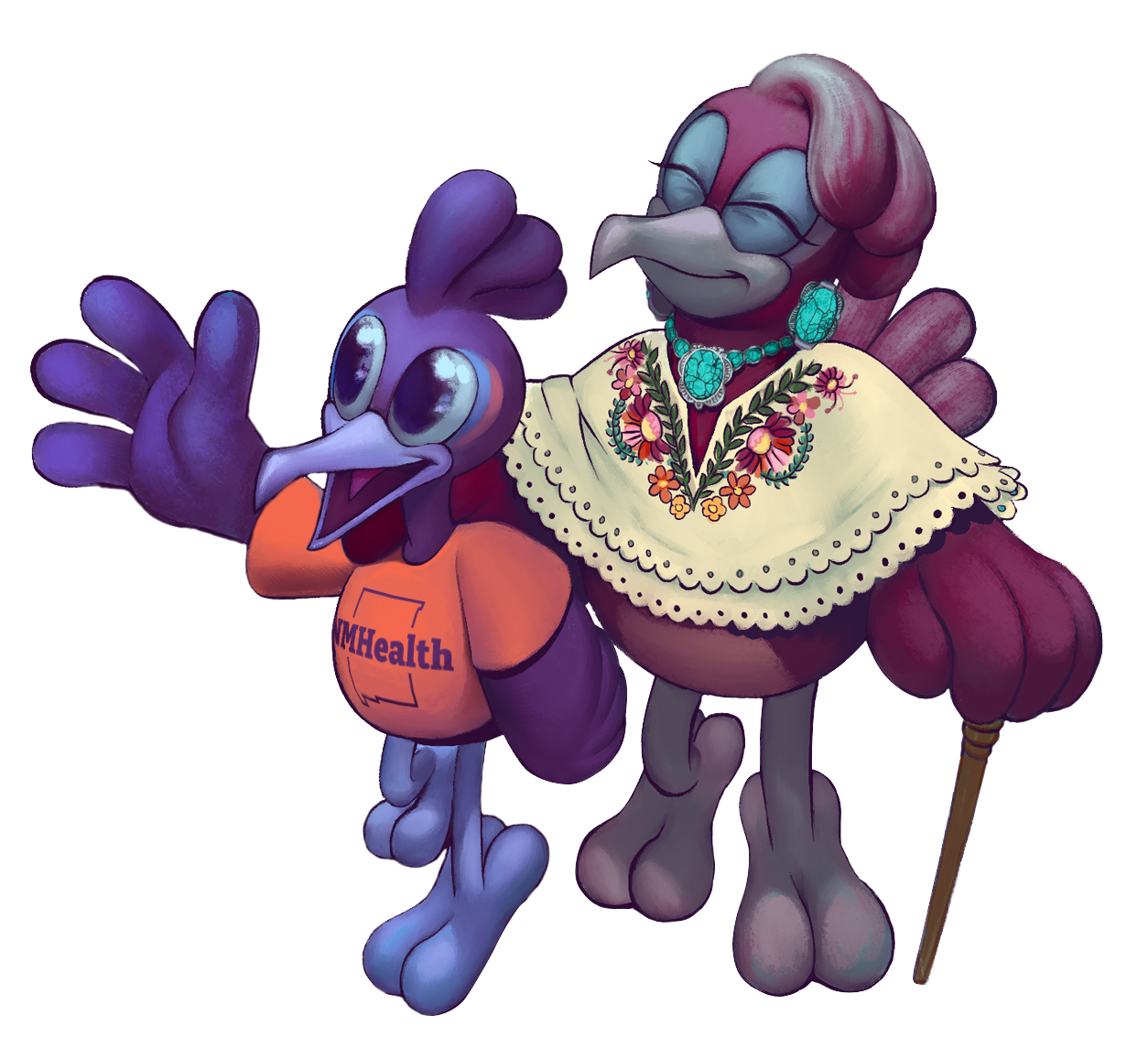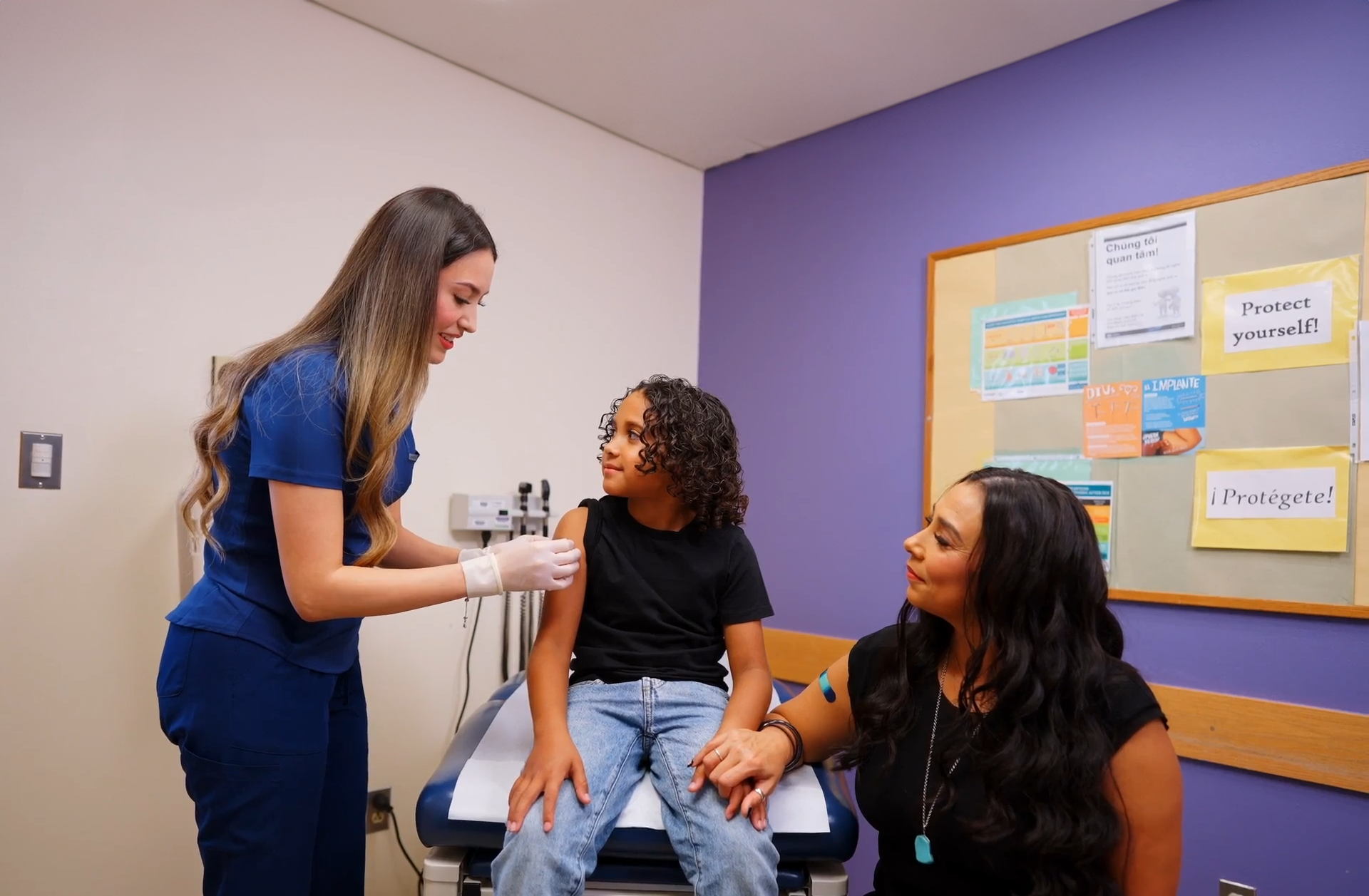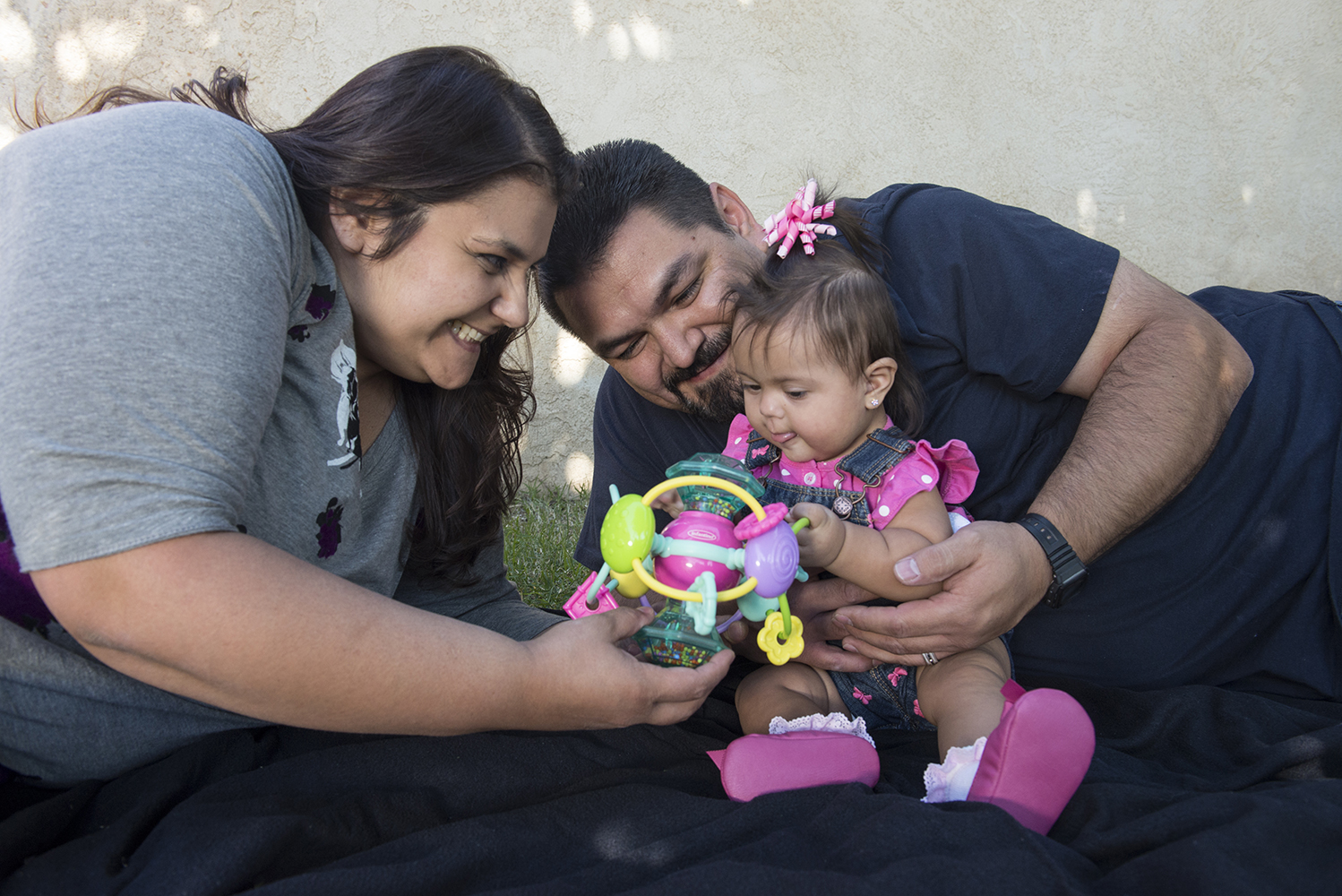
What is a Well-Child Visit?
A well-child visit is a routine check-up that allows healthcare providers to assess a child’s growth, development, and overall health. It includes physical exams, vaccinations, and discussions about nutrition, behavior, and any concerns parents may have. These visits help make sure your child is growing up healthy and strong.

Don’t risk disenrollment from school!
Make sure your child is healthy and ready for the next school year.
Why are Well-Child Visits Important?
Preventive Care:
Catch potential health issues early.
Vaccinations:
Stay up to date on immunizations.
Growth Monitoring:
Check physical development.
Health Education:
Get guidance on nutrition, safety, and developmental milestones.
How to Schedule a Well-Child Visit
Scheduling a well-child visit is a great way to support your child’s health, and measure their milestones while making sure they’re up to date on vaccinations. Here’s how to schedule a visit:
Choose a Healthcare Provider:
Look for pediatricians or family doctors where you live.
Contact Information:
Call the the doctor’s office directly or visit their website to schedule an appointment.
Insurance Verification:
Check if your health insurance covers your prefered local clinic or doctor well-child visits. New Mexico offers several programs for low-income families with limited income.
View the resources below for additional support.

Where to go for a Well-Child Visit
Explore our providers below, and look for the orange pins on the map to find public health offices.
Frequently Asked Questions
What is a well-child visit?
A well-child visit is a routine check-up that allows healthcare providers to assess a child’s growth, development, and overall health. It includes physical exams, vaccinations, and discussions about nutrition, behavior, and any concerns parents may have.
How often should my child have a well-child visit?
Typically, well-child visits are recommended at specific times:
-
Newborns: 1 week, 1 month, 2 months, 4 months, 6 months
-
Toddlers: 12 months, 15 months, 18 months
-
Preschoolers: 2 years, 3 years, 4 years
-
School-aged children: Annually until age 18.
What should I expect during the visit?
During a well-child visit, the healthcare provider will measure your child’s height and weight, check their vision and hearing, assess developmental milestones, perform a physical exam, and discuss any health concerns. Vaccinations may also be given.
What should I bring to the appointment?
Bring your child’s immunization records, any relevant medical history, a list of medications, and any questions or concerns you wish to discuss.
Are vaccinations given during well-child visits?
Yes, well-child visits often include recommended vaccinations according to the child’s age and immunization schedule. It’s important to keep your child up to date on their vaccines.
Can I ask about my child’s behavior and development during the visit?
Well-child visits are an excellent opportunity to talk about any concerns you may have about your child’s behavior, development, sleep patterns, and social interactions.
What if I have concerns about my child’s health?
Bring any concerns to the attention of the healthcare provider during the visit. They can provide guidance, recommend tests if needed, and help you understand any issues.
How can I help my child feel comfortable during the visit?
Explain the visit to your child in a simple and positive way. Bring a favorite toy or comfort item, and remain calm and supportive throughout the appointment.
Will I receive a report after the visit?
What happens if my child misses a well-child visit?
It’s important to reschedule as soon as possible. Missing a visit can delay vaccinations and important assessments, so it’s best to catch up on appointments.
What questions should I ask my provider?
- Is my child meeting their developmental milestones for their age?
- Are my child’s vaccinations up to date? What vaccines are recommended during this visit?
- What dietary changes should I consider to support my child’s growth? Are there any foods to avoid?
-
How much physical activity should my child be getting each day?
-
What is the recommended amount of sleep for my child’s age group?
-
Are there any behavioral issues I should be aware of, or ways to encourage positive behavior?
-
What safety measures should I take for my child (car seats, bike helmets, etc.)?
-
How much screen time is appropriate for my child?
-
What signs of anxiety or depression should I look out for in my child?
-
When should I schedule the next visit?
-
Are there any specific follow-up actions needed after this visit?

Additional Resources

Early and Periodic Screening, Diagnostic, and Treatment (EPSDT) Services:
EPSDT services ensure that children receive early detection and care, so that health problems can be diagnosed, and treatment be provided as early as possible.

Turquoise Care Medicaid (includes the Children’s Health Insurance Program (CHIP):
Offers no-cost health insurance for children in families that qualify for Medicaid, and for some children whose families earn too much to qualify for Medicaid but not enough to afford private insurance.

Women, Infants, and Children (WIC) Program:
Provides nutrition assistance, education, and support for pregnant women, new mothers, and young children.

New Mexico Family Planning Program:
Offers reproductive health services, including preventive care, to low-income individuals and families.

Temporary Assistance for Needy Families (TANF):
Provides cash assistance and support services to help families with children achieve self-sufficiency.

Head Start and Early Head Start:
Provide early childhood education, health, nutrition, and social services to low-income children and their families.

New Mexico Child Care Assistance Program:
Helps low-income families pay for childcare while they work or attend school.
"Well Child" Partner Toolkits
The “Well Child New Mexico” campaign aims to promote the health and well-being of children across New Mexico by ensuring they receive timely wellness checkups, vaccinations, and developmental screenings. With easy access to services through pediatricians, family care providers, and school-based health centers, the campaign emphasizes the importance of preventive care for children’s growth and development. It also highlights the availability of resources to help parents schedule appointments and understand what to expect during visits. The campaign’s goal is to keep New Mexico’s children healthy and thriving from infancy through adolescence.
8.5x11 Flyers
11x17 Posters
Social Media
Full Partner Tool Kit

